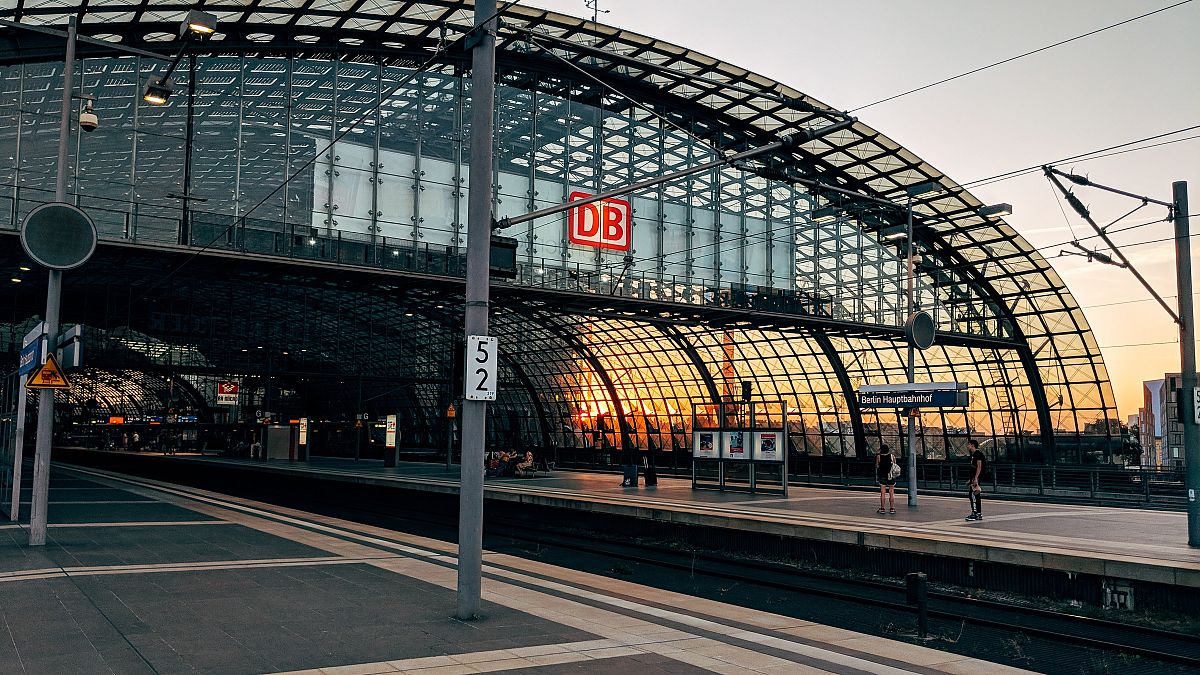Rail travel in Germany has been plagued by strikes this year and the industrial action is set to continue in 2024.
Members of a union representing German train drivers have voted overwhelmingly to stage open-ended strikes next year in a bitter dispute with the main national railway operator Deutsche Bahn (DB) over working hours and pay.
Earlier this month, the GDL union launched a 24-hour public transport walkout causing severe disruption to services run by DB.
Although the union has said there will be no strikes before 8 January 2024, the dispute has escalated unusually fast and will affect rail travel early next year.
Why are Germany's rail workers striking?
The GDL union has voted overwhelmingly to authorise 'fully-fledged' strikes at state-owned DB.
The group staged a 24-hour 'warning strike' on 8 December, a common tactic in German wage negotiations, but the disagreement continues to escalate.
GDL's chairman, Claus Weselsky, declared last month that negotiations with DB had failed after only two rounds of talks.
The central issue is the union’s call for shift workers’ hours to be reduced from 38 to 35 hours per week without a pay reduction, a demand at which employers so far have baulked.
GDL is seeking a raise of €555 per month for employees plus a one-time payment of up to €3,000 to counter inflation. DB has said it made an offer that amounts to an 11 per cent raise.
How will Germany's rail strikes affect passengers?
Although GDL has said there will be no strikes before 8 January, they have not supplied information on when and for how long members will strike after that.
“What is coming now will be more powerful, longer and harder for customers” than the walkouts so far, Weselsky said.
During the 'warning strikes' earlier in December, long-distance, regional and S-Bahn services were subject to delays and cancellations.
Other railway companies such as the Transdev Group (including Bayerische Oberlandbahn and NordWestBahn) were also affected.
DB advised passengers to avoid rail travel during the strikes. "Please refrain from unnecessary journeys during the GDL strike and postpone your journey to another time," they said.
In April, railway workers' union EVG also went on strike to push for wage increases causing rail transport to be paralysed for a morning.
The group also walked out in March causing all long-distance DB trains to be halted for a day.
EVG's dispute with DB was settled earlier this year after both sides accepted a proposal by arbitrators.
Refunds: What are train passenger's rights in Germany?
If your journey is affected, you have various options, according to DB:
- In some cases, DB puts a 'special arrangement' in place allowing you to bring forward your journey and travel ahead of the planned strike time.
- You can postpone your journey and use your ticket at a later date of your choosing - there is no limit on when your ticket can be used.
- Seat reservations can be cancelled free of charge.
- If your train has been cancelled, you can get a full refund with no deductions.


